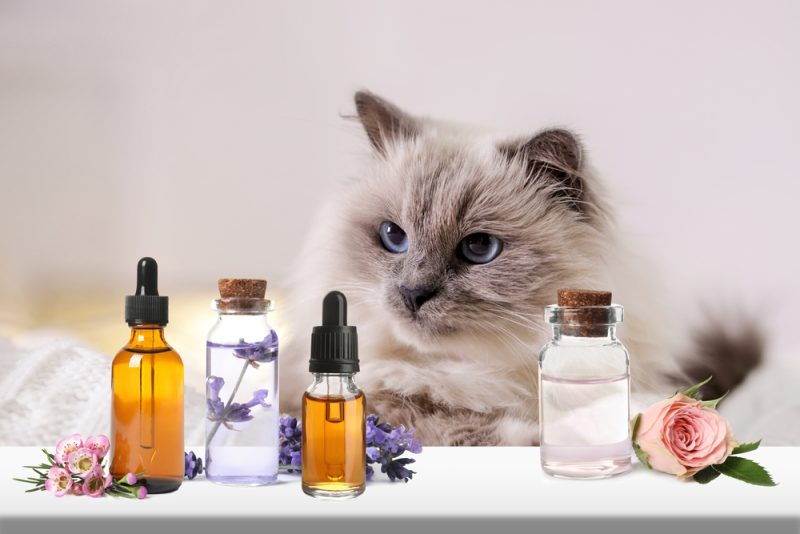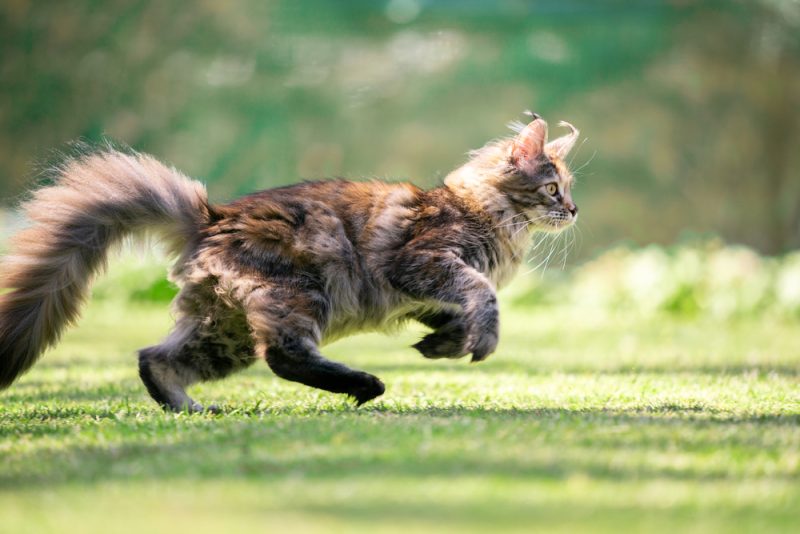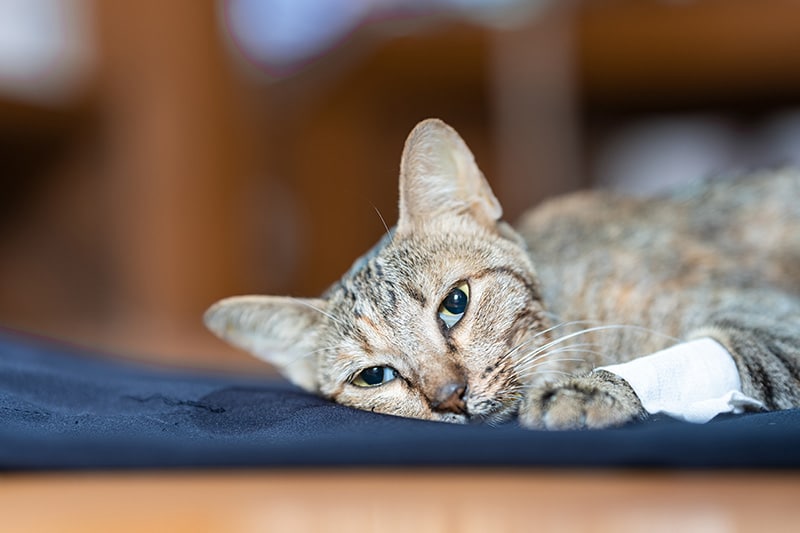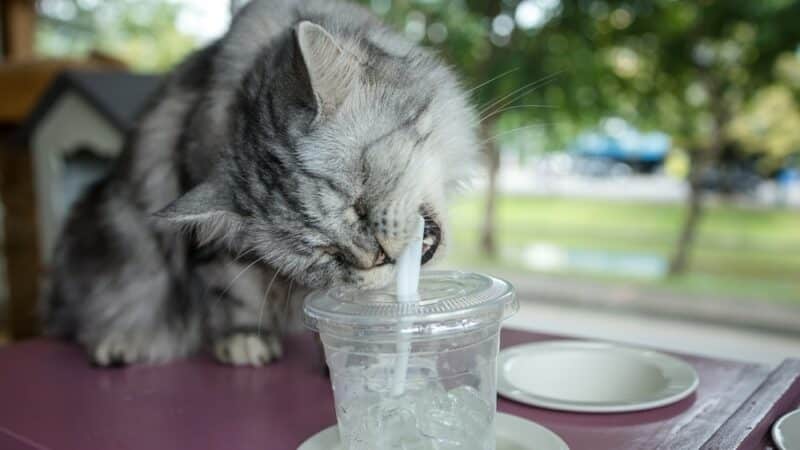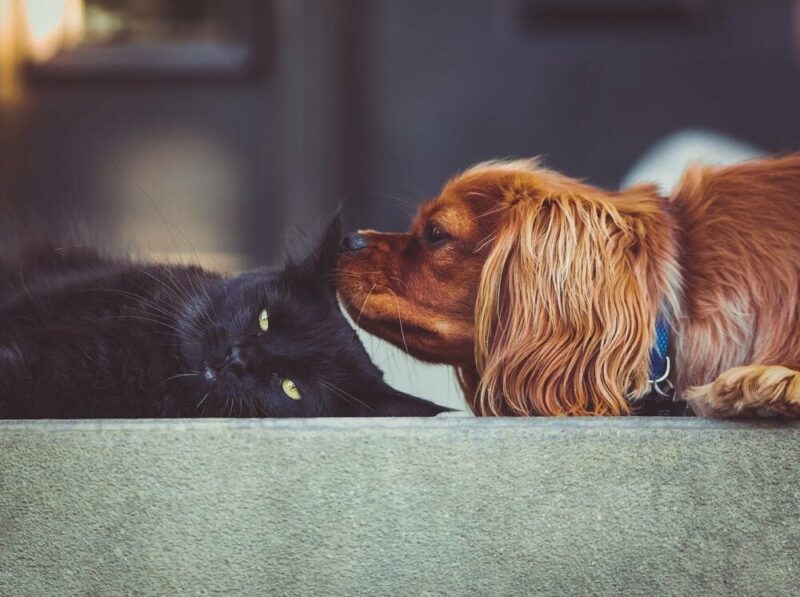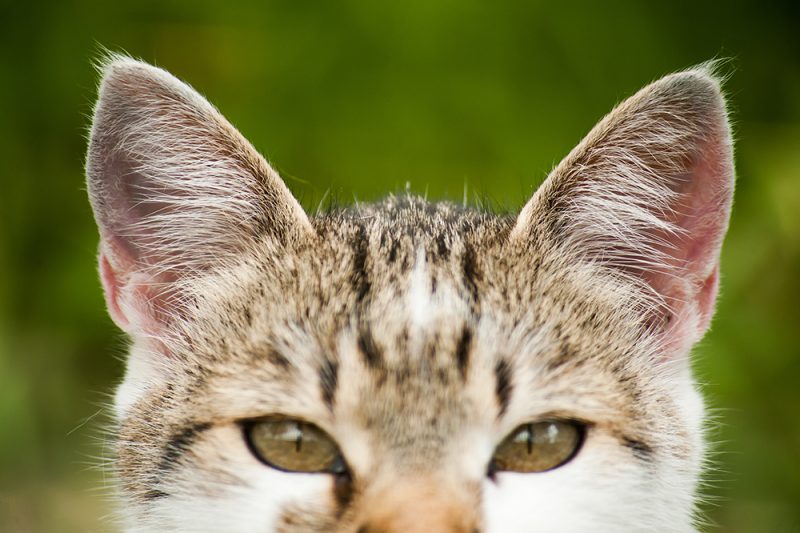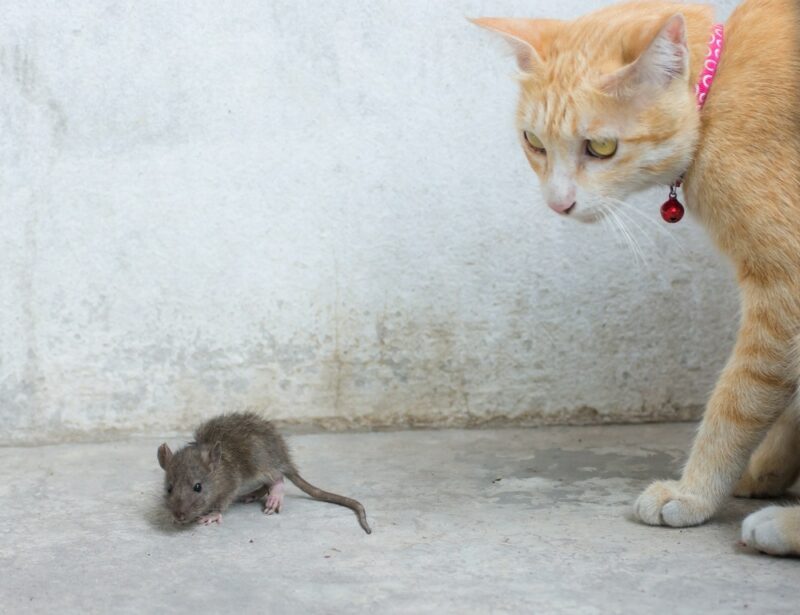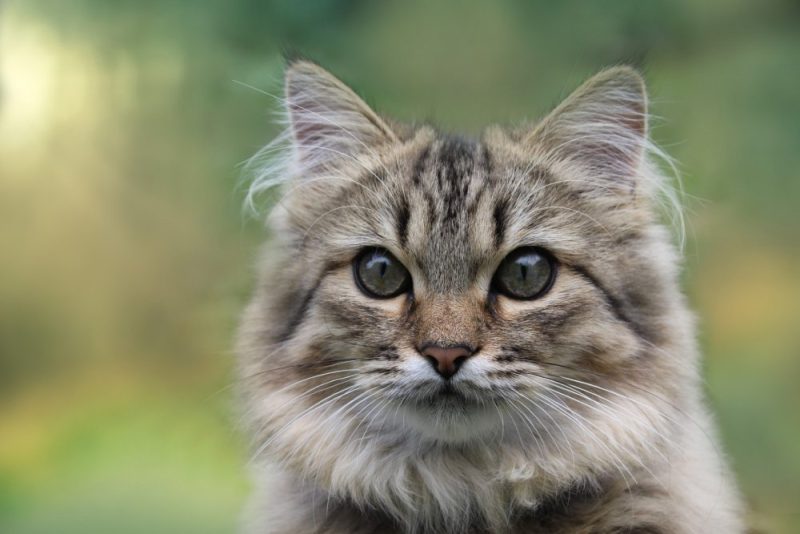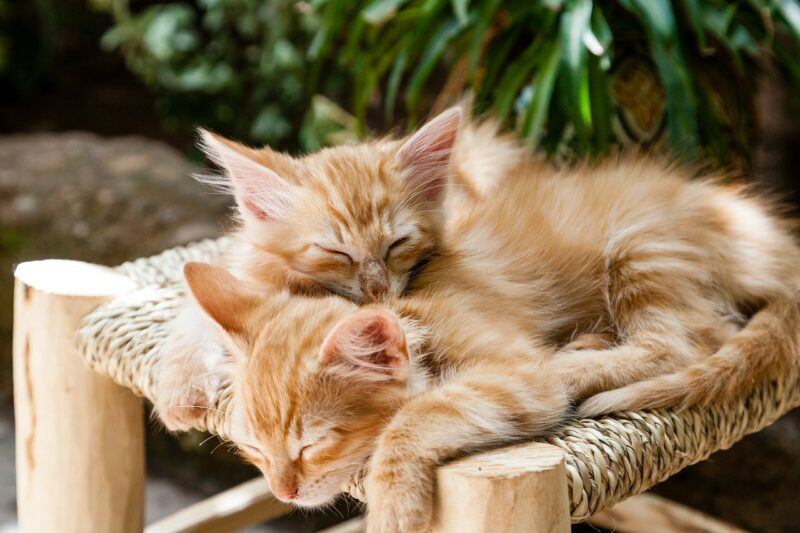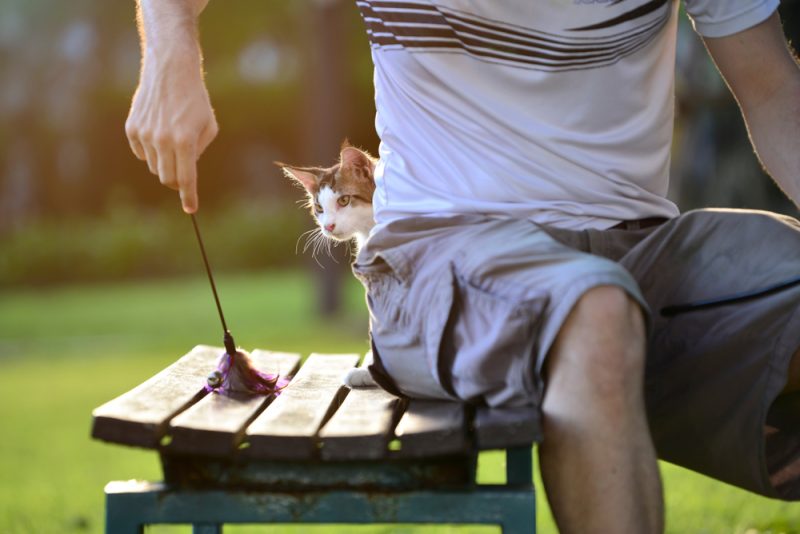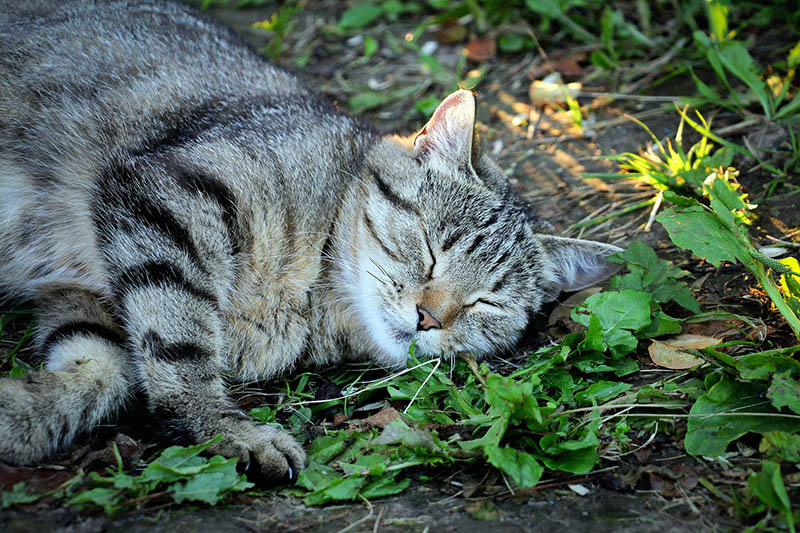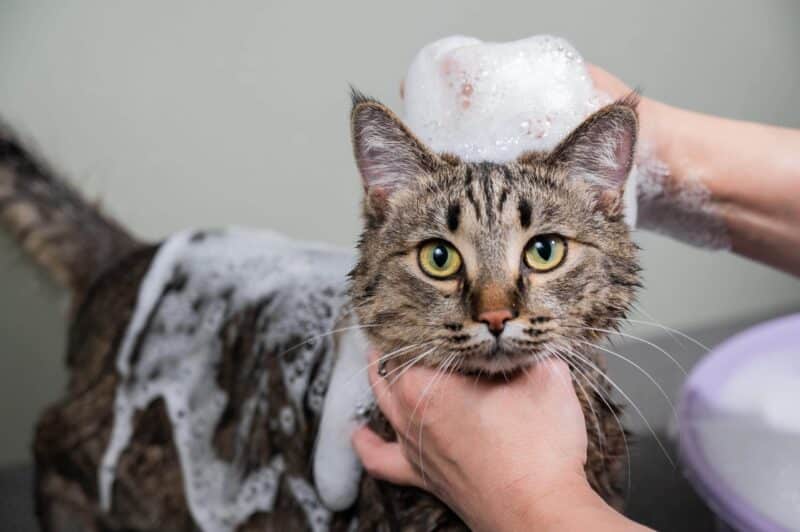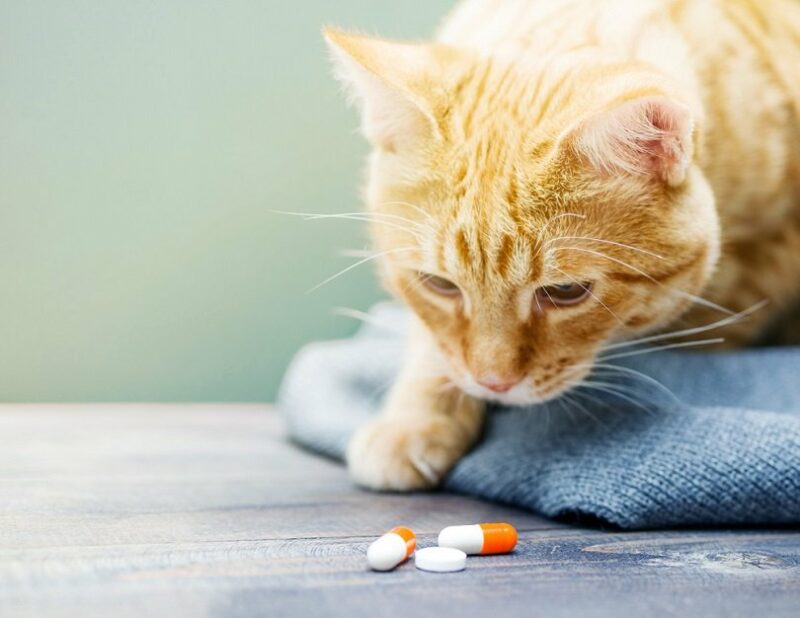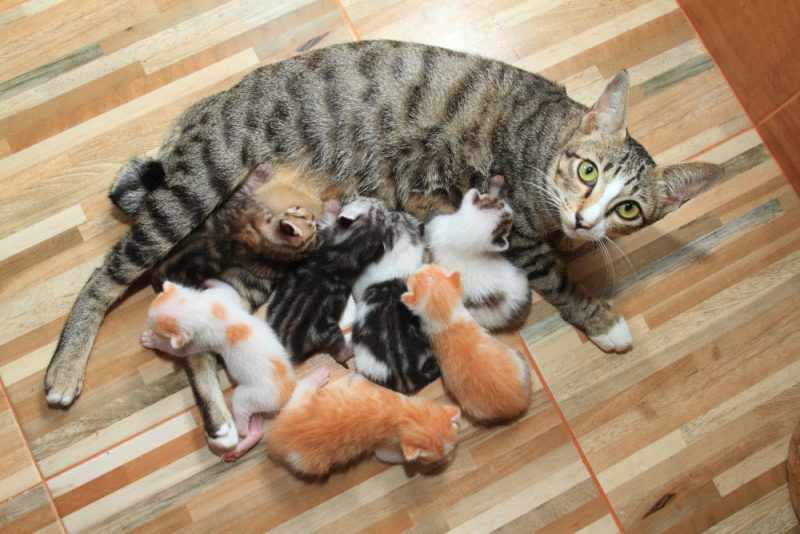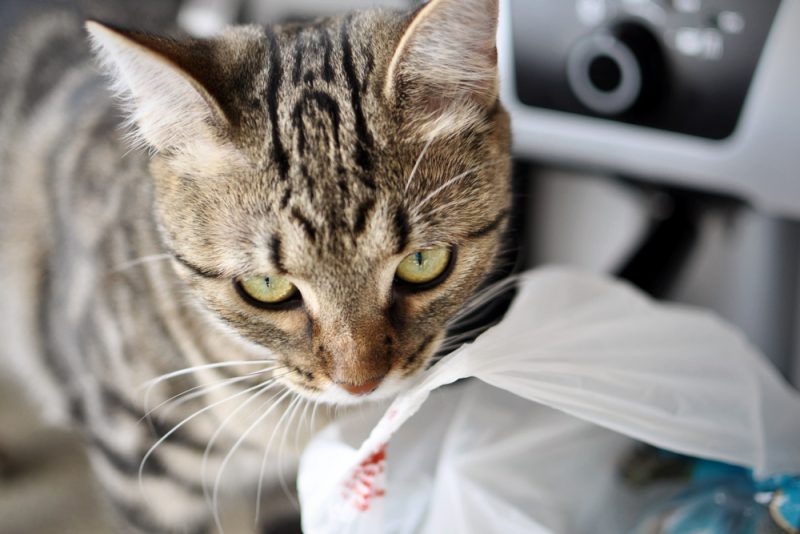In this article
Diffusing essential oils in your house can make your home smell amazing and can even help you relax after a stressful day. However, if you have a cat (or cats), you may want to avoid using essential oils altogether as most of them can prove to be quite toxic for your pets.1
Unfortunately, most essential oils pose a risk for your cat and none are considered safe. Thus, we will give you a few tips on the necessary requirements for using them in your home. We’ll walk you through what oils are most dangerous, as well as the signs you need to look out for if your cat is suffering any ill effects. We all want your cats to be safe and in good health.
What Exactly Are Essential Oils?
Essential oils are extracts that have been taken from plants through pressing or steaming, but not every plant produces essential oil. The oils can be taken from flowers, leaves, bark, rinds, roots, and fruits and are concentrated in order to preserve the plant’s natural flavor and scent.
Essential oils are typically combined with a carrier oil (oil used as a base such as jojoba or almond oil) and are commonly used in aromatherapy. They are not meant to be ingested but are usually applied to the skin or dispersed as aerosol and are thought to provide benefits for physical as well as mental health.

Why Cats & Essential Oils Don’t Mix
Cats have a lower number of certain enzymes in their livers, while completely lacking others, thus having less functional and significantly slower metabolic pathways that metabolize and eliminate certain medications, drugs, and most essential oils.
Additionally, cats are also quite sensitive to phenol and salicylates, which are compounds found in many essential oils. Therefore, if an essential oil has a high concentration (100% is pretty high), the greater the toxicity for the cat.
What Are the Most Dangerous Essential Oils?
There are quite a number of essential oils that are known to be very toxic to cats, and most will cause signs of poisoning if ingested (often through grooming), absorbed through the skin, or inhaled.
These essential oils include:
- Tea tree oil
- Clove oil
- Ylang ylang oil
- Pine oil
- Pennyroyal oil
- Cinnamon oil
- Peppermint oil
- Wintergreen oil
- Eucalyptus oil
- Thyme oil
- Sweet birch oil
- Basil oil
- Citrus oil (specifically, d-limonene)
Tea tree oil, in particular, can be very harmful to your cat. These oils are used for a variety of reasons. They are used in personal care products, herbal remedies, insecticides, as a potpourri (in liquid form), and in distillers.

Signs of Essential Oil Poisoning
The signs of essential oil poisoning will depend on how much and what kind of essential oil the cat was exposed to, as well as whether they ingested or inhaled the toxic substance.
- Vomiting
- Low heart rate
- Labored breathing
- Panting, coughing, wheezing
- Wobbliness and staggering
- Tremors
- Drooling
- Liver failure
- Low body temperature
- Watery nose and eyes
- Burning sensation in the nose and throat
- Skin burns
If you know your cat was around essential oils and ingested or inhaled any or has started displaying any of these signs, take them to the vet immediately. Time is of the essence.
Please note that even if your cat does not immediately exhibit the signs of poisoning, they are at risk of serious and sometimes life threatening side effects and should see the vet immediately.
Potentially Less Harmful Essential Oils
Unfortunately, there aren’t any essential oils that are deemed safe for using around your cat. Some may be less concentrated and thus less likely to cause signs of toxicity, but none should be used around cats. Even a couple of licks or a very small amount on the skin can be very harmful.
- Frankincense oil
- Valerian oil
- Copaiba oil
- Helichrysum oil
- Cedarwood oil
While these essential oils are not as harmful as the others, you should still use them with caution in your home, making sure they have only a subtle aroma and never come in contact with your cat. Never apply them directly to your cat’s skin or let them ingest or inhale any. Keep cats out of any rooms where you are using essential oils. And remember, these may be less irritating or toxic than the first group of essential oils, but all of these oils may still cause harmful signs when they come in contact with your cat.
How to Safely Use Essential Oils
If you still want to use essential oils in your home, there are ways to do so safely. Some of the tips include:
- Use the diffuser for a short time in an area the cat cannot access.
- Avoid using essential oils completely if your cats suffer from breathing issues (asthma).
- Make sure the bottle and diffuser are stored in a secure place out of your cat’s reach to avoid accidental spillage and ingestion.
- Check that the essential oils do not have any added extra ingredients or chemicals that may also be toxic to your cat.
- Don’t touch your cat after handling essential oils and wash your hands thoroughly.
- Avoid using undiluted essential oils for cleaning. Cats like to rub against everything and they could easily rub off onto their fur or get on their paws.
- Use only the listed safe oils and ensure that they are very dilute with a subtle aroma.
- Keep your cat away from diffusers. If you use reed diffusers, plugin diffusers, or a nebuliser for essential oils, keep your cat out of those areas in the house.
- Make sure to ventilate the room well before letting your cat back in.
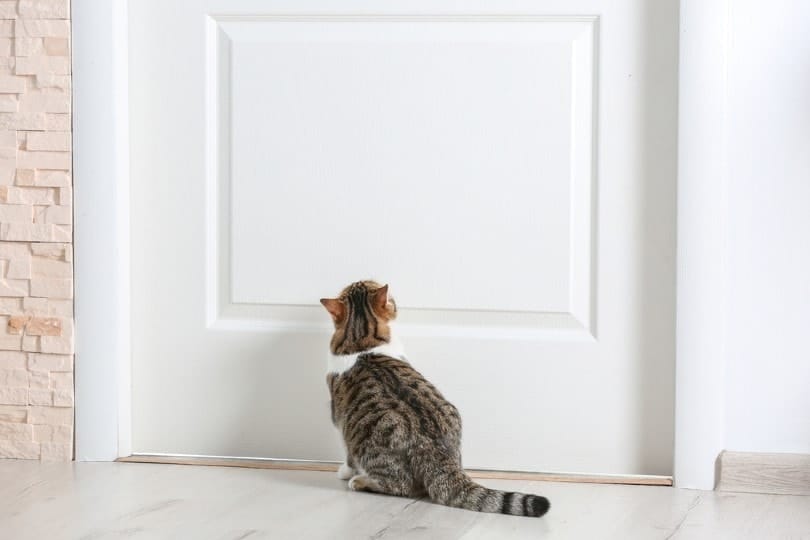
Using a Diffuser
As we already mentioned, essential oils are not safe for cats and should not be used around them. The safest bet is to find other kinds of aromatherapy or relaxation that will not pose a health risk to your cat. However, for those cat owners who want to find a balance by using the diffusers safely away from their cat and only occasionally, based on our tips, we will also briefly discuss types of diffusers.

These kinds of passive diffusers work by evaporating the oil:
Motorized diffusers
The motorized diffuser uses a small fan that blows air through a pad or filter with essential oil soaked into it.
Reed diffusers
Reeds (usually rattan reeds) are placed in a glass container with a mixture of essential oils and a base oil (such as jojoba oil). The reeds soak up the oil, and the scent evaporates into the air.
Heat diffusers
These diffusers use heat to disperse the scent into the air. This can be accomplished with a plug-in or electric diffuser, tabletop warmers, and candle burners.
Personal diffusers
You can have your own personal diffuser with a pendant for a necklace or bracelet that uses a pad soaked in the essential oil that is placed inside. We would not recommend this if you have cats, as it’s easy to forget it’s there and cuddle with your cat while wearing the diffuser, exposing them to the harmful oils.
Active Diffusers
Active essential oil diffusers work by emitting actual microdroplets or particles of oil into the air in addition to the pleasant aroma. Nebulizing diffusers and ultrasonic diffusers fall into this category.
The droplets dispersed by these new diffusers may be small, but they still pose a risk to cats if they get ingested or end up on their skin. The essential oil microdroplets may fall on the cat’s fur if they are in the same room as the active diffuser. The oil can either be absorbed directly through the skin or ingested when the cat self-grooms.
Some Warnings
Passive diffusers release scent but not actual oil. However, you’ll want to place the diffuser in a location that your cat won’t be able to reach, ideally in another room. If she accidentally (or maybe purposefully, knowing cats) knocks over the diffuser and gets the oil on her, she’ll lick it off her fur and become quite sick. If you suspect this may be the case, contact your vet immediately.
There is also the chance of your cat suffering from respiratory irritation from the diffuser just emitting the scent, even passively.
- Watery eyes
- Runny nose
- Burning sensation in the nose and throat
- Panting and fast breathing
- Difficulty breathing
- Coughing
- Wheezing
Take your cat into some fresh air as soon as you notice these signs and get your vet on the line. If they don’t show improvement straight away, take them to the vet immediately.
If your cat already suffers from any respiratory condition, such as allergies or asthma, they’ll be far more susceptible to suffer from serious respiratory irritation than other cats. You might want to reconsider using a diffuser at all if this is the case.
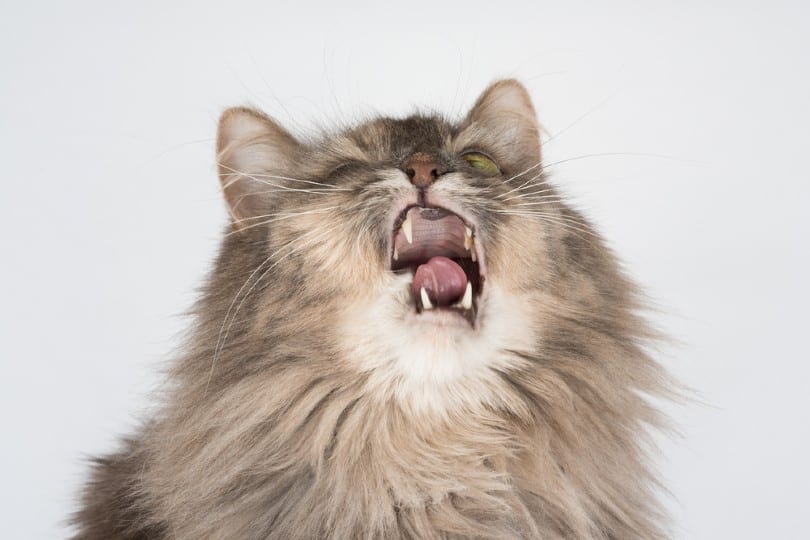
A Few Last Notes
If you’re going to go ahead and use a diffuser despite the risk it poses to your cat’s health, first of all, make sure to follow our recommendations and ensure the essential oil is very diluted. Adding extra water allows you to enjoy a subtle aroma while minimizing the risk for your cat.
When using a diffuser, just be sure your cat is not present and restrict their access to this area or room. Your cat should never be confined in a space where you have a diffuser with essential oils.
Lastly, speak to your vet before using a diffuser. Talk to them about the oils, active ingredients, and the actual diffuser you’ll be using, and follow any advice they give you.
Conclusion
Even if you’re very careful and take all the necessary precautions, using any diffuser with essential oils will unfortunately always pose a significant risk for your cat. Speak to your vet about any concerns or questions you may have regarding diffusing essential oils. Of course, we want to feel calm and have a lovely-smelling home, but our cats’ safety and well-being are of the utmost importance, and this means approaching with caution and putting our cats’ health first.
Related Read:
- 25 Plants That Are Safe to Have Around Cats (with Pictures)
- What Essential Oils Do Cats Hate? The 7 Worst Options
- How to Safely Burn Incense Around Cats: 3 Vet-Reviewed Tips
Featured Image Credit: New Africa, Shutterstock
